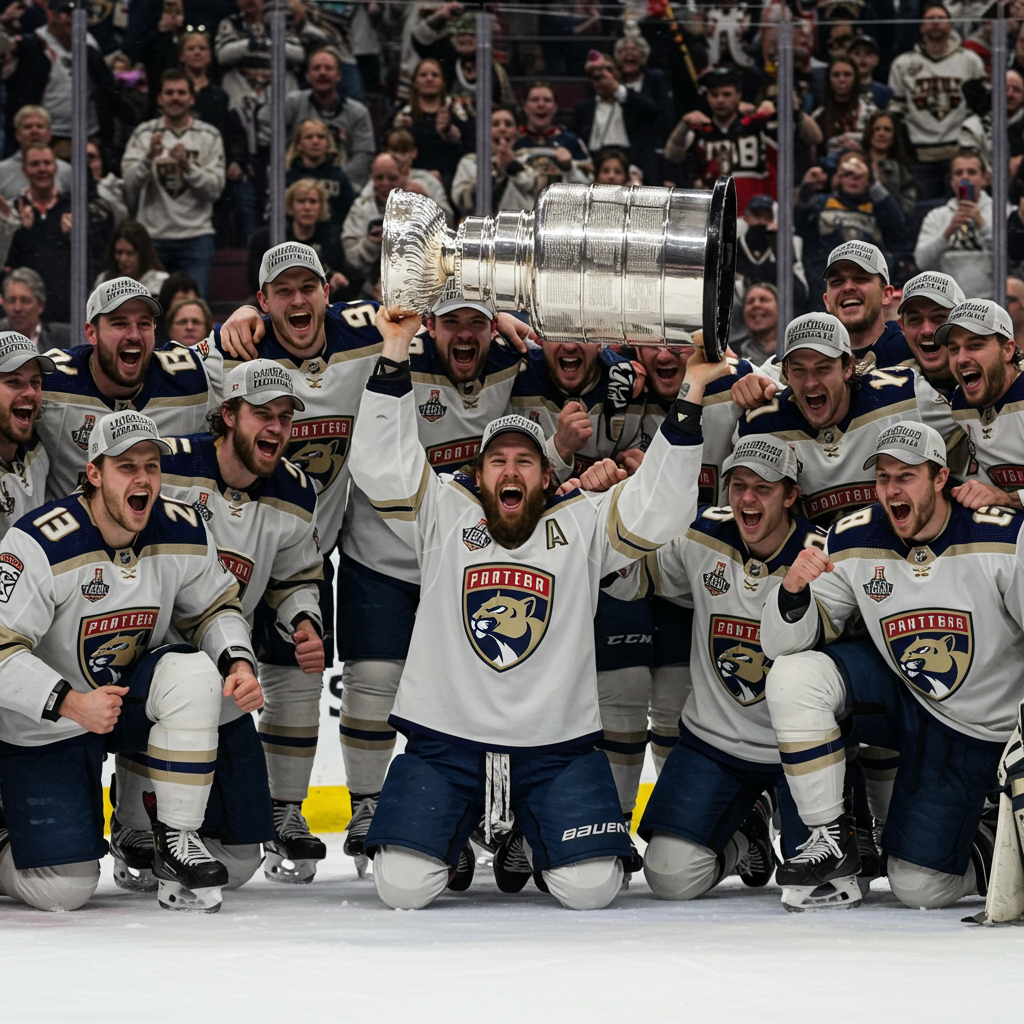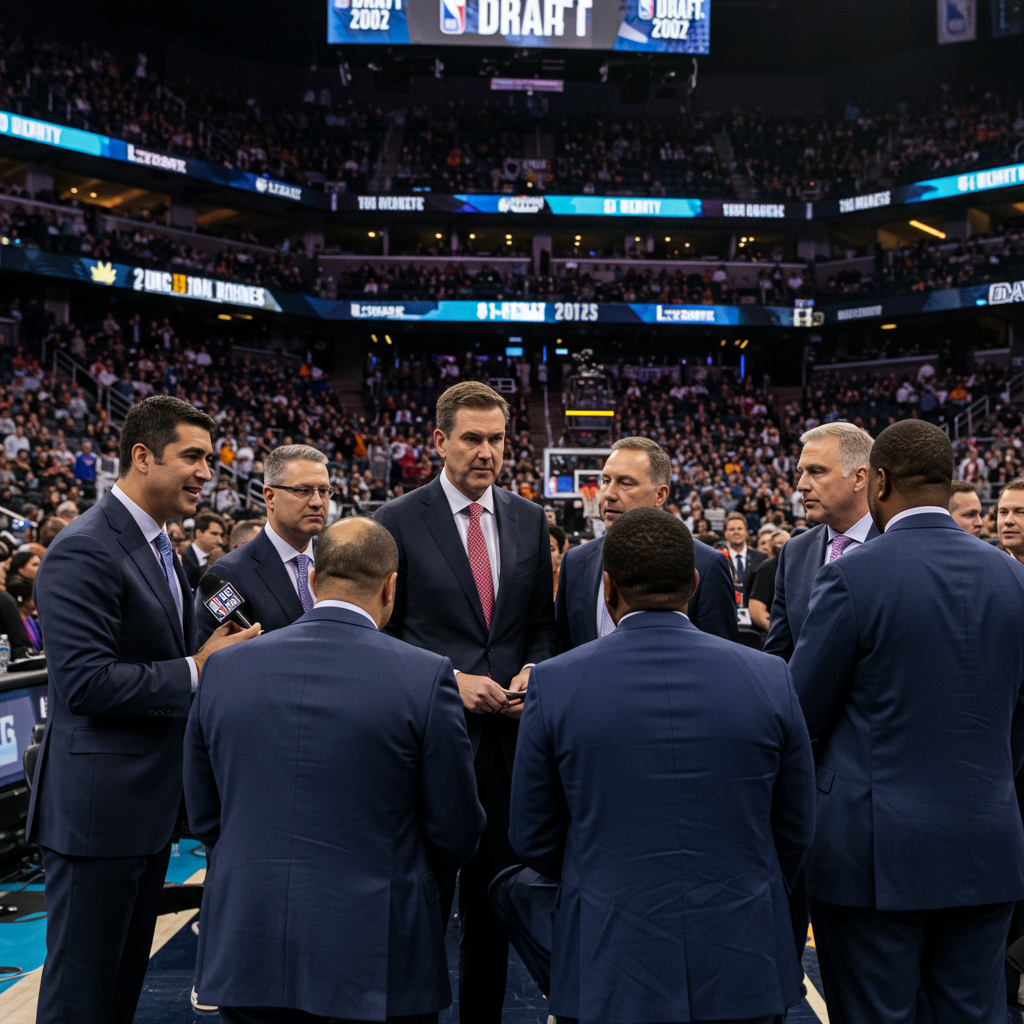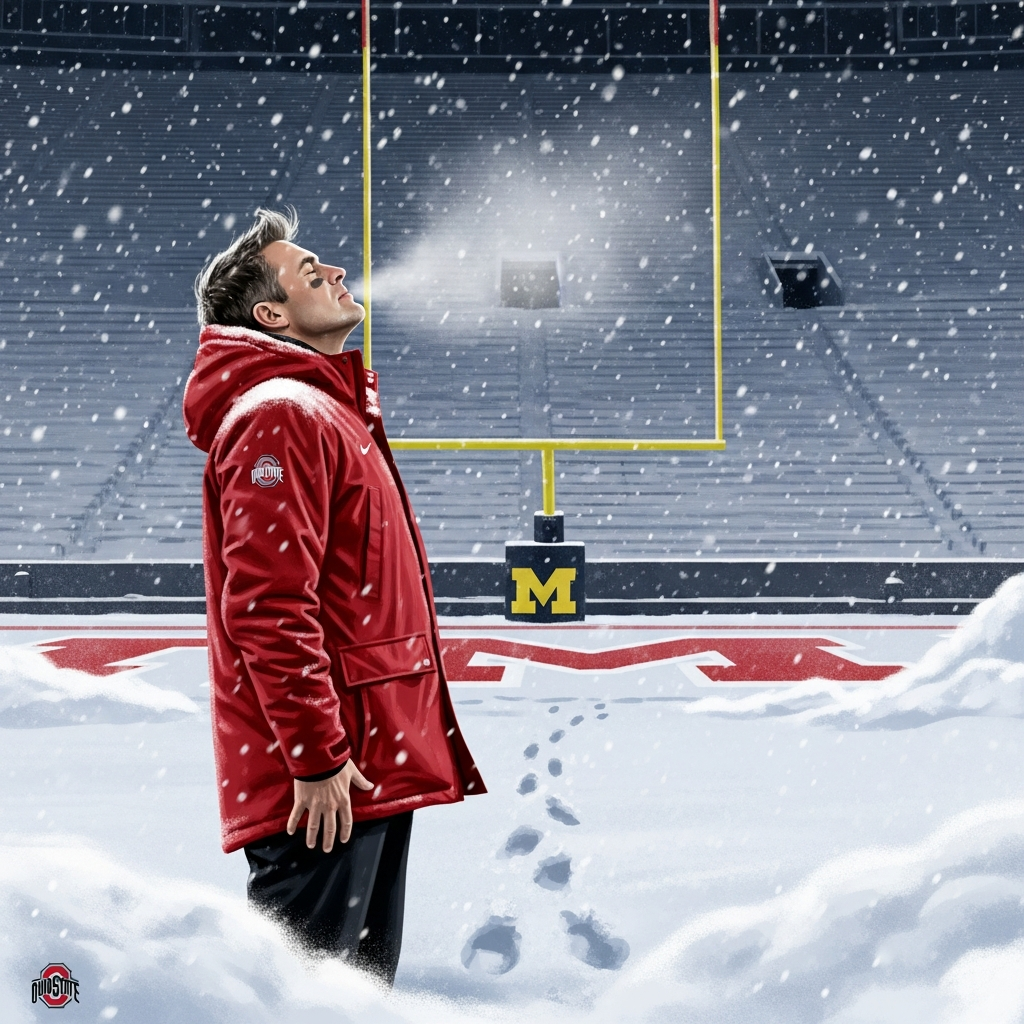The Florida Panthers have just etched their names into hockey history, securing their second consecutive Stanley Cup victory in 2025 after a dominant playoff performance. Defeating the Edmonton Oilers in six games in the Final, the Panthers not only repeated as champions – a feat accomplished by only 10 franchises in NHL history – but they did so with incredible statistical strength, earning over $6.5 million in prize money from the league ($6,539,375 to be exact, compared to the Oilers’ $3,781,250).
This recent success, built on a foundation of strong leadership, steady play, and a belief in building a winning culture that turned the franchise around from its previous lower rankings, has immediately ignited debate: are the Florida Panthers the best team of the salary-cap era?
Looking beyond just their spectacular 2025 run, which featured a staggering 94 goals scored (the 4th highest ever and most since the 1991 Penguins) and a remarkable plus-38 goal differential over 23 games (the 4th best ever), their performance over a three-season window (2023-2025) is among the most impressive the league has seen. They weren’t just an offensive force; they allowed a mere 56 goals and demonstrated stifling defense, particularly in the 2025 Final where they limited superstars Connor McDavid and Leon Draisaitl to a combined two goals and six points over the final four games. The Panthers spent a commanding 255:49 time leading during that final series.
But is a run highlighted by reaching one Final (2023) and winning back-to-back Cups (2024, 2025) enough to claim the top spot when compared to other cap-era powerhouses? Let’s rank the top six teams of the salary-cap era (since 2005-06) based on their best three-season playoff stretches.
Ranking the Cap Era’s Best Playoff Runs
Here are the top contenders, evaluated by their performance over their most impactful three-season playoff windows:
6. Detroit Red Wings (2007-2009)
Record: 41-22
Goal Differential: 1.14 per game
Stanley Cups: 1 (2008)
Notable: This three-year stretch included Detroit’s most recent Cup win, capping a legendary era for the franchise. Led by icons like Nicklas Lidstrom, Henrik Zetterberg (2008 Conn Smythe winner), and Pavel Datsyuk, they reached three consecutive deep playoff runs. While they only secured one Cup in this specific window, falling short in a Game 7 upset against the young Penguins in 2009, this team remains a memorable part of cap-era history.
5. Pittsburgh Penguins (2016-2018)
Record: 38-23
Goal Differential: 0.76 per game
Stanley Cups: 2 (2016, 2017)
Notable: Featuring Sidney Crosby (two-time Conn Smythe winner in this period) and Evgeni Malkin in their primes, these Penguins won back-to-back championships. They battled through significant adversity, including injuries, showcasing remarkable scoring depth (enhanced by the addition of Phil Kessel) and crucial goaltending from Matt Murray and Marc-Andre Fleury. Their run, while incredibly successful, ended with a second-round loss in 2018, preventing a higher ranking.
4. Los Angeles Kings (2012-2014)
Record: 41-23
Goal Differential: 0.75 per game
Stanley Cups: 2 (2012, 2014)
Notable: This Kings team had a unique path, winning the 2012 Cup as the first-ever eighth seed to do so. Their success was built on a punishing combination of size, elite defensive play led by Drew Doughty, incredible depth scoring (Justin Williams won Conn Smythe in 2014), and Vezina-caliber goaltending from Jonathan Quick (2012 Conn Smythe winner). Their disciplined approach resulted in an exceptional 2.09 goals allowed per game and an astounding 87.2% penalty kill over these three postseasons, making them defensively one of the best ever.
3. Chicago Blackhawks (2013-2015)
Record: 43-22
Goal Differential: 0.43 per game
Stanley Cups: 2 (2013, 2015)
Notable: While the Blackhawks’ true cap-era dominance spans a larger window including their 2010 Cup, their 2013-2015 stretch stands strong. Led by a core of Jonathan Toews, Patrick Kane (2013 Conn Smythe winner), Duncan Keith (2015 Conn Smythe winner), and Marian Hossa, they defeated formidable opponents like the 2011 Cup-winning Bruins and a burgeoning Tampa Bay Lightning team. Their quest for three consecutive Cups was only halted by the 2014 Kings.
2. Florida Panthers (2023-2025)
Record: 45-23
Goal Differential: 0.62 per game
Stanley Cups: 2 (2024, 2025)
Notable: This Panthers era began with an unexpected run to the Final as an eighth seed in 2023, followed by back-to-back championships. Their success is largely attributed to incredible organizational depth and strategic roster building by GM Bill Zito, including impactful trade deadline acquisitions that paid huge dividends. Key players like Matthew Tkachuk, Aleksander Barkov, Sergei Bobrovsky, Sam Reinhart, and Carter Verhaeghe formed the core, supported by crucial depth pieces. Their recent dominance is undeniable, making them a leading contender in this conversation.
1. Tampa Bay Lightning (2020-2022)
Record: 46-22
Goal Differential: 0.65 per game
Stanley Cups: 2 (2020, 2021)
Notable: The Lightning earn the top spot based on a remarkable achievement unique in the cap era: reaching three consecutive Stanley Cup Finals. Led by future Hall of Famers like Nikita Kucherov, Andrei Vasilevskiy (2021 Conn Smythe winner), Victor Hedman (2020 Conn Smythe winner), Steven Stamkos, and Brayden Point, and coached by the highly respected Jon Cooper, this team was a perennial powerhouse. Although their first two Cup wins came during unique “pandemic-era” seasons, their ability to reach the Final three straight times, coming within two games of a three-peat (losing in Game 6 in 2022), gives them the edge in this specific three-year window comparison.
Looking Ahead
While the Tampa Bay Lightning’s unprecedented three straight Finals appearances give them the current edge in this ranking based on a three-season window, the Florida Panthers’ recent back-to-back championships and dominant statistical profile make a strong case. With a core group poised to remain intact, the Panthers have the potential for continued success. If they can sustain their elite performance with another deep playoff run in the near future, the debate over the best team of the cap era could very well swing in their favor, solidifying their claim to dynasty status.




